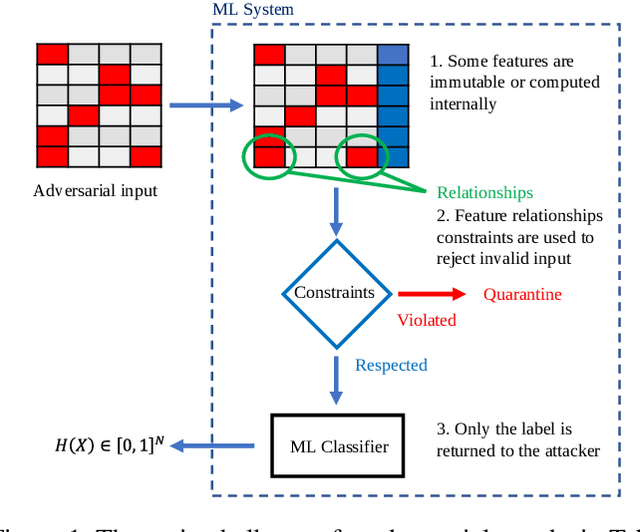Constrained Adaptive Attacks: Realistic Evaluation of Adversarial Examples and Robust Training of Deep Neural Networks for Tabular Data
Paper and Code
Nov 08, 2023



State-of-the-art deep learning models for tabular data have recently achieved acceptable performance to be deployed in industrial settings. However, the robustness of these models remains scarcely explored. Contrary to computer vision, there is to date no realistic protocol to properly evaluate the adversarial robustness of deep tabular models due to intrinsic properties of tabular data such as categorical features, immutability, and feature relationship constraints. To fill this gap, we propose CAA, the first efficient evasion attack for constrained tabular deep learning models. CAA is an iterative parameter-free attack that combines gradient and search attacks to generate adversarial examples under constraints. We leverage CAA to build a benchmark of deep tabular models across three popular use cases: credit scoring, phishing and botnet attacks detection. Our benchmark supports ten threat models with increasing capabilities of the attacker, and reflects real-world attack scenarios for each use case. Overall, our results demonstrate how domain knowledge, adversarial training, and attack budgets impact the robustness assessment of deep tabular models and provide security practitioners with a set of recommendations to improve the robustness of deep tabular models against various evasion attack scenarios.
 Add to Chrome
Add to Chrome Add to Firefox
Add to Firefox Add to Edge
Add to Edge